Are you tired of the constant parking violations in your neighborhood? You're not alone! Many residents have expressed their frustration about the lack of enforcement when it comes to parking regulations. Let's dive into the details of crafting a compelling complaint letter that addresses the issue while encouraging action from local authoritiesâread on to discover how you can make your voice heard!
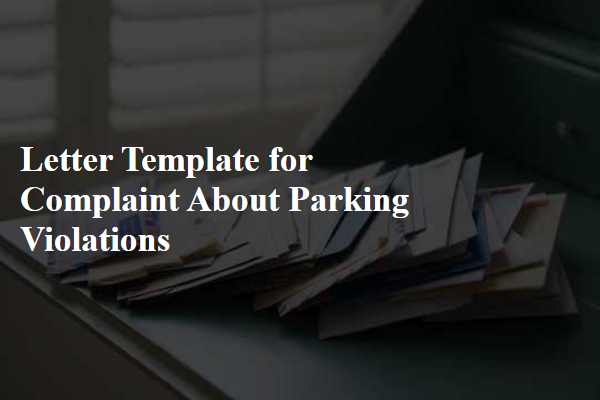
Clear description of the violation
Parking violations often occur when vehicles are improperly parked in designated spaces, typically in urban areas. For example, in downtown Manhattan, New York City, a car parked in a no-parking zone during peak hours may receive a ticket costing $115. Additionally, vehicles blocking fire hydrants can incur even steeper fines, ranging from $250 to $500, depending on local regulations. Such violations disrupt traffic flow, create safety hazards, and inconvenience other drivers. Notably, when multiple vehicles are parked illegally on a single block, it can exacerbate congestion and frustration for commuters daily. Local enforcement agencies, such as the New York City Department of Transportation, monitor these violations regularly to maintain order and safety on the roads.
Specific location and time details
Numerous parking violations have been observed in the downtown area of Springfield, particularly on Maple Street, during weekday evenings, specifically from 5 PM to 9 PM. Vehicles consistently occupy designated no-parking zones, creating obstructions for emergency services, such as fire trucks and ambulances, which could lead to significant delays in critical situations. Multiple instances of this occurrence have been documented over the past month, with license plates noted including ABC1234 and XYZ5678. Local businesses, such as Joe's Deli and Smith's Grocery, report loss of customers due to blocked access points. Residents express growing frustration regarding safety concerns and accessibility issues. Immediate enforcement action is essential to address these ongoing violations and ensure a safer environment for all on Maple Street.
Supporting evidence or documentation
Parking violations often disrupt community order, leading to frustration among residents. It is crucial to document these infractions accurately. Photographic evidence illustrating the violation, timestamps from parking enforcement apps, or detailed records of multiple incidents on precise dates bolster complaints. Collecting witness statements or corroborating reports from nearby businesses further enhances credibility, while referencing local parking ordinances--like Section 12 of the City Code--establishes legal grounds for the complaint. Submitting this evidence to the city council, such as at City Hall located on Main Street, can stimulate action against repeated offenders and reinforce community standards.
Impact on the community and individuals
Parking violations, especially in urban areas like downtown Chicago, can significantly disrupt community dynamics and daily life for residents. Abandoned vehicles cluttering essential thoroughfares, such as State Street, create obstacles for emergency services, potentially delaying response times during critical situations. Illegally parked cars block access to vital public spaces like parks or libraries, limiting community engagement and activities. These violations strain relationships among neighbors as disputes arise over limited parking availability, particularly in densely populated areas where street parking is a premium. Furthermore, consistent disregard for parking regulations may foster a sense of lawlessness, undermining the community's trust in local governance and public order, ultimately affecting the overall quality of life.
Request for specific actions or resolutions
Parking violations disrupt the orderly flow of traffic and create safety hazards in urban areas like downtown Los Angeles. Instances of vehicles improperly parked can lead to significant congestion, impacting emergency response times; for example, blocked fire lanes were reported during a recent three-alarm fire, causing delays in response efforts. Local ordinances, such as the Los Angeles Municipal Code, specify clear parking regulations, including zone restrictions and time limits, yet violations continue to rise, affecting both business operations and resident access. In light of these concerns, enforcement agencies are urged to increase patrols, issue more citations, and implement better signage in high-violation areas to ensure compliance and restore order to the streets.
Letter Template For Complaint About Parking Violations Samples
Letter template of formal complaint regarding parking violations in residential area.
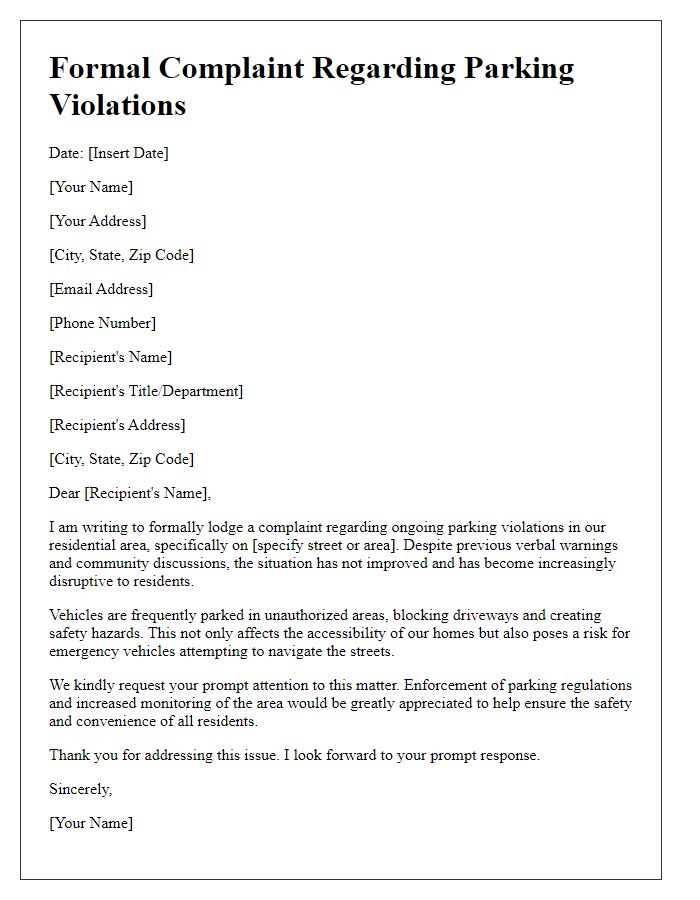
Letter template of complaint against unauthorized parking on private property.
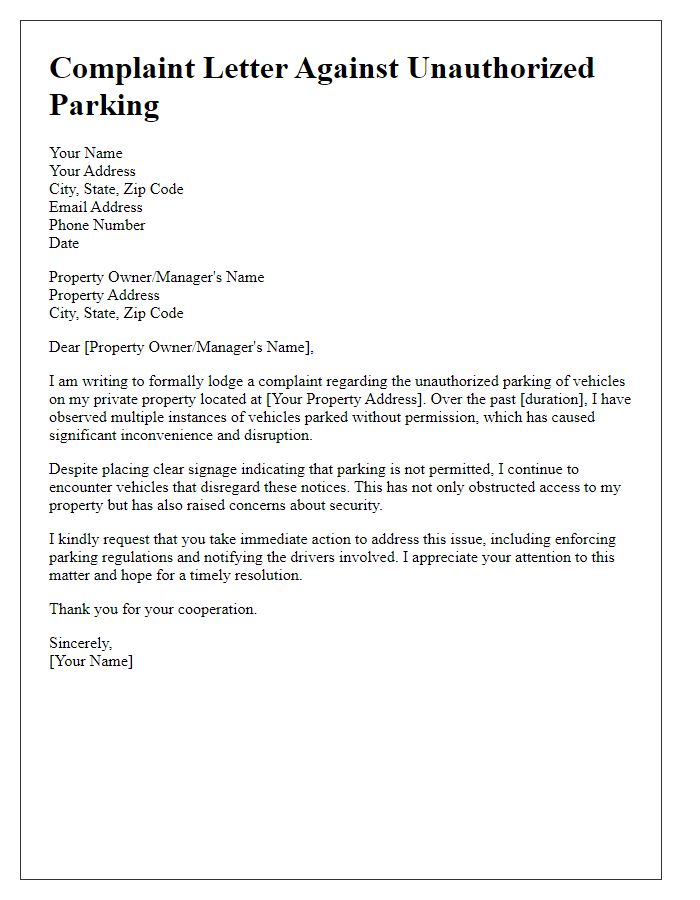
Letter template of grievance concerning frequent parking ticket issuance.
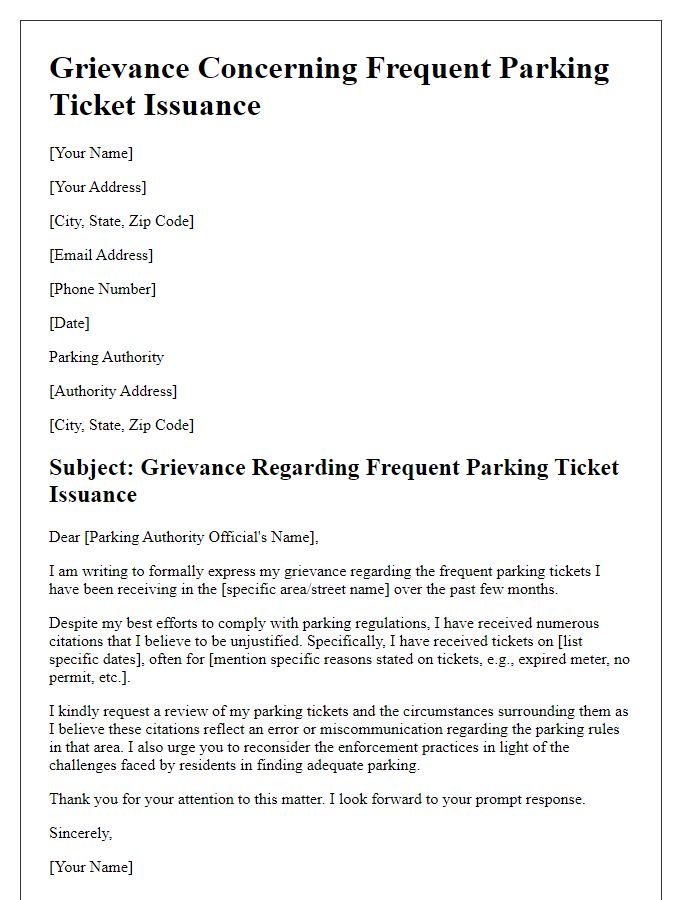
Letter template of notification about recurring parking violations near school zone.
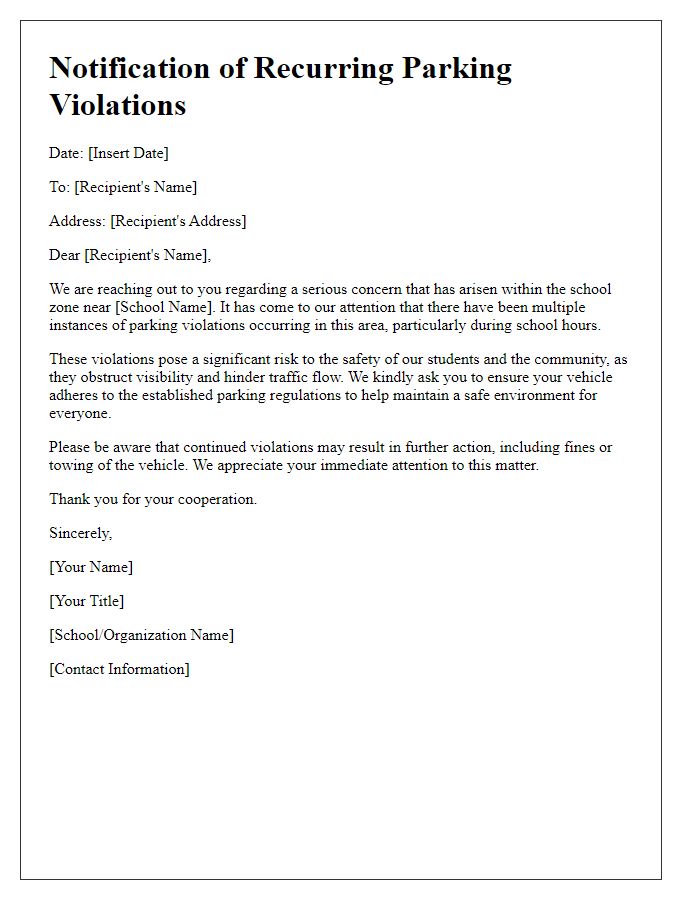
Letter template of objection to illegal parking affecting local business access.
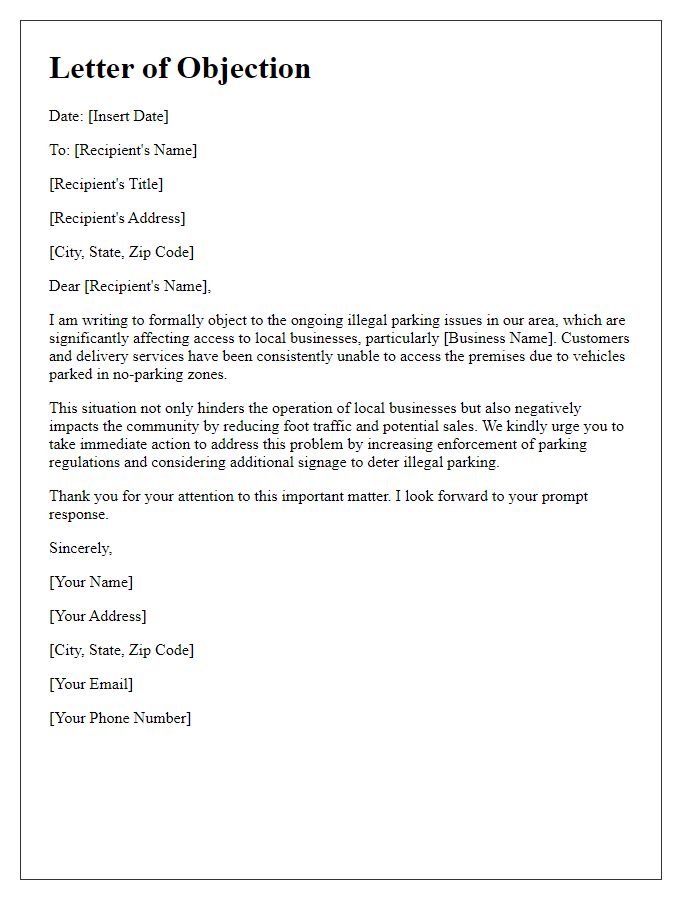
Letter template of issue reporting chronic parking violations in public parking lot.
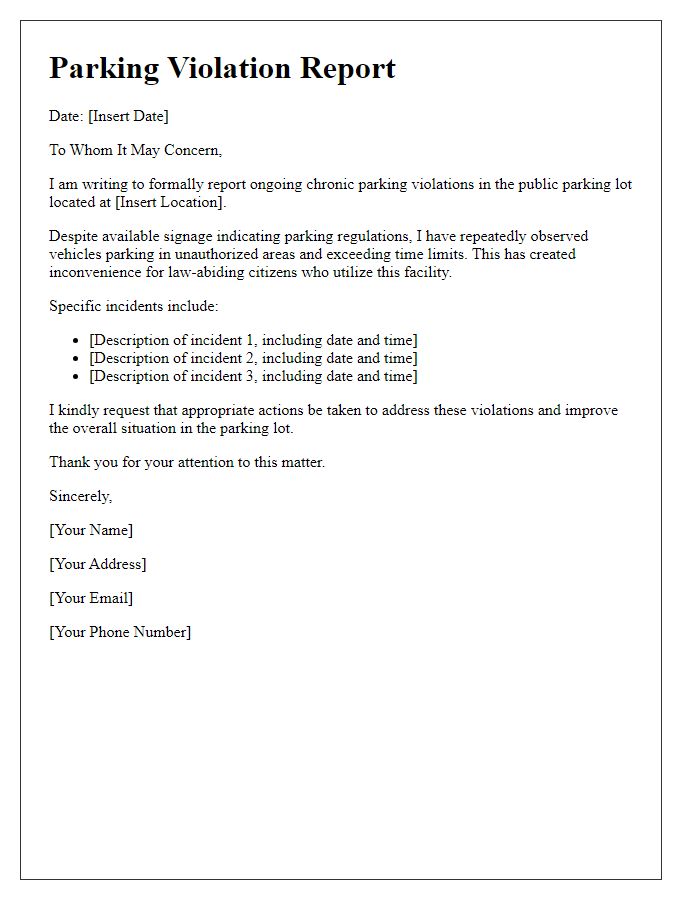
Letter template of appeal regarding parking enforcement actions on community streets.
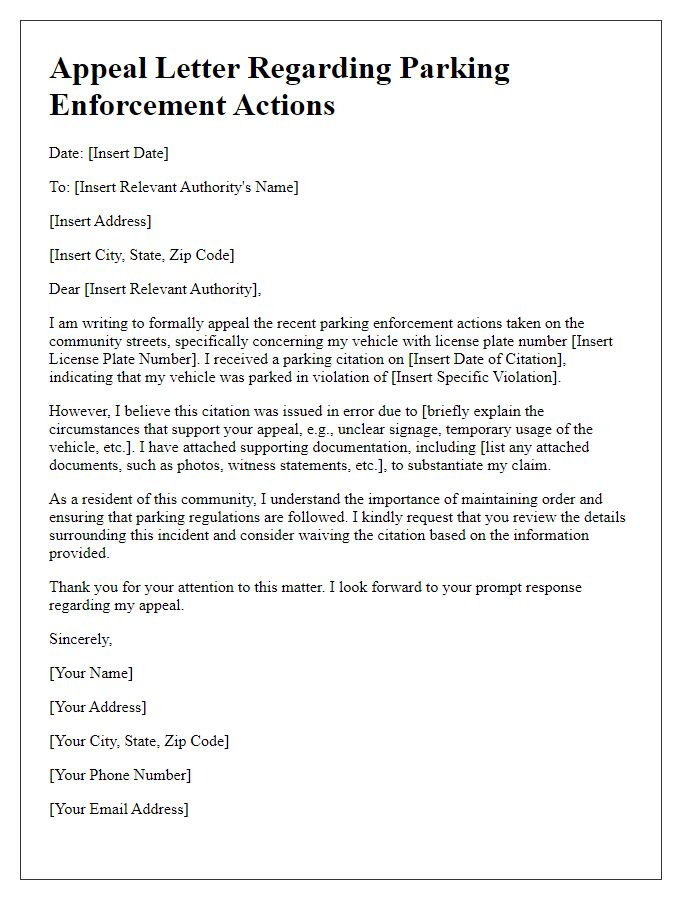
Letter template of report about obstructive parking hindering emergency vehicle access.
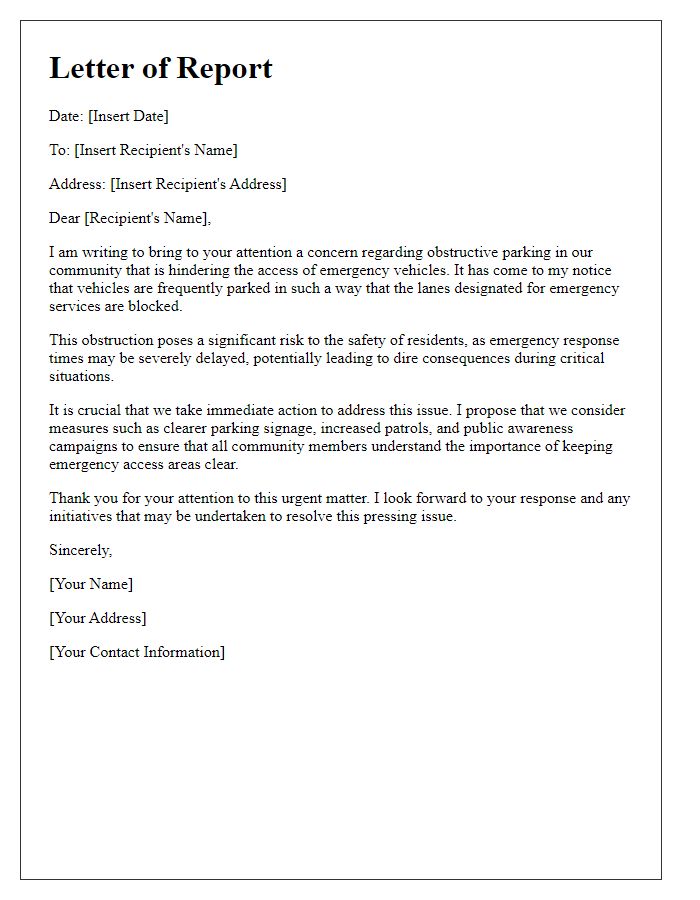
Letter template of inquiry for parking regulation enforcement in neighborhood.
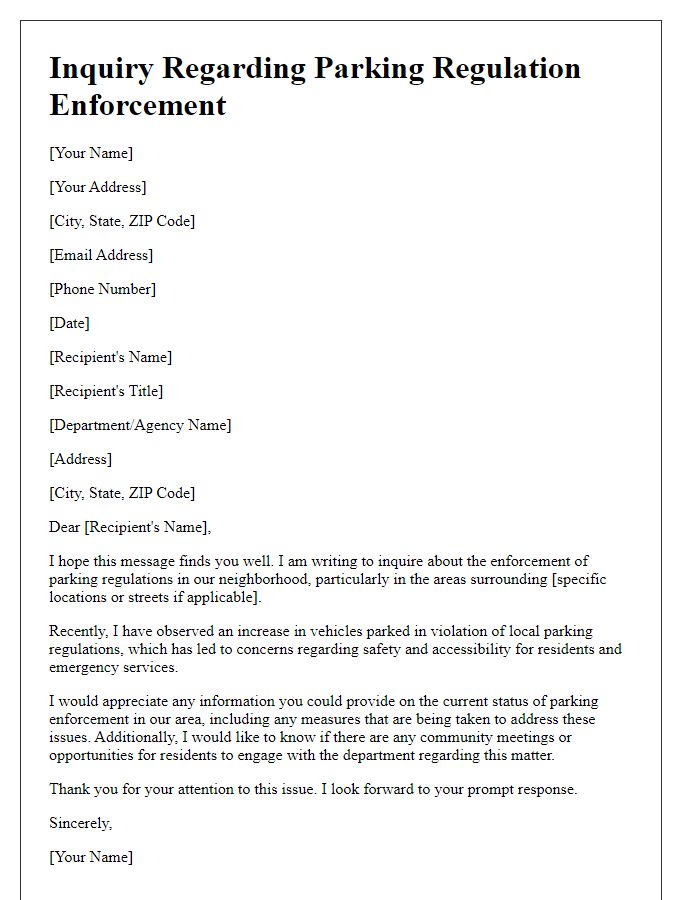

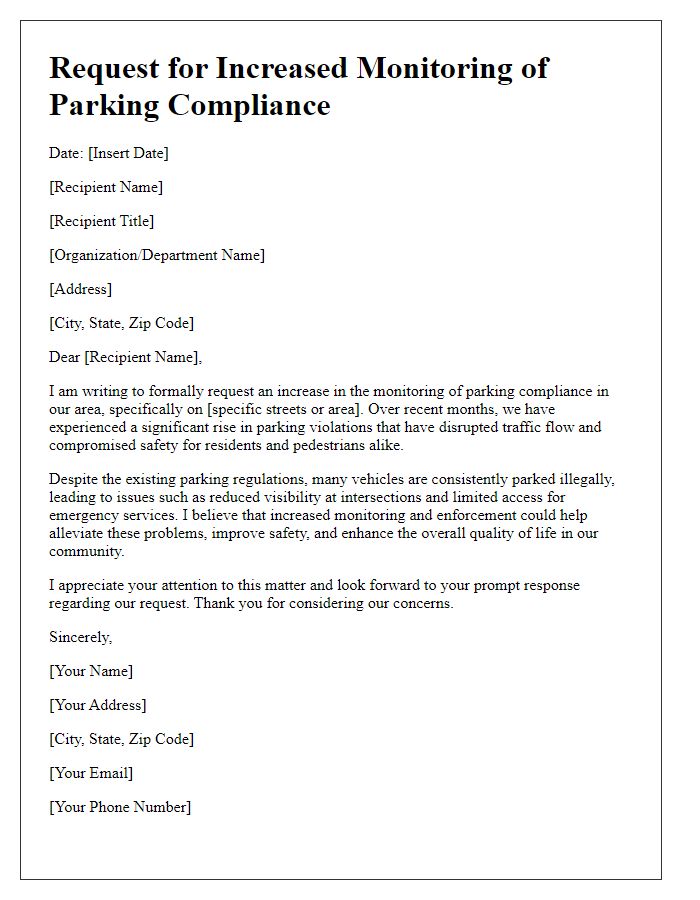

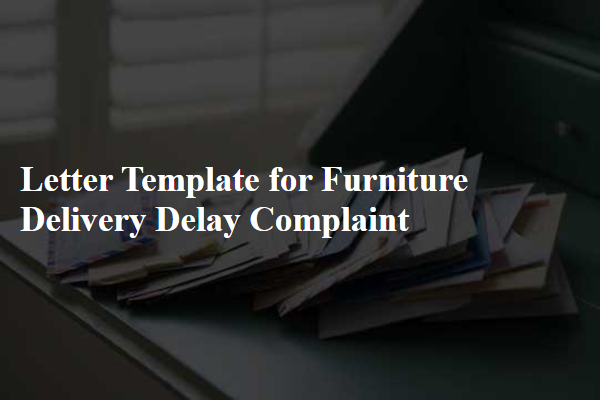
Comments